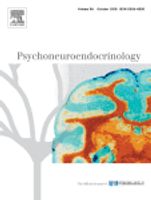Nih
Effects of oxytocin administration and conditioned oxytocin on ...
Oxytocin is a peptide hormone produced in the hypothalamus and is found to have a wide range of effects on brain activity. Its receptors are densely situated in the hypothalamus, amygdala, olfactory bulbs, and cingulate cortex [10], areas that are also associated with maternal care, social ...
Nih
Effects of single- and multiple-dose oxytocin treatment on amygdala ...
Prior neuroimaging clinical trials investigating the neural effects of intranasal administration of the neuropeptide oxytocin demonstrated a key role of the amygdala in oxytocin’s neuromodulatory effects. These studies mostly demonstrated the acute ...
PubMed
Oxytocin attenuates amygdala reactivity to fear in generalized ...
Patients with generalized social anxiety disorder (GSAD) exhibit heightened activation of the amygdala in response to social cues conveying threat (eg, fearful/angry faces). The neuropeptide oxytocin (OXT) decreases anxiety and stress, facilitates social encounters, and attenuates amygdala ...
Frontiers
Frontiers | Oxytocin as the Neurobiological Basis of Synchronization: ...
IntroductionSynchronization of physiological signals between individuals seems to originate from intra-uterine life between mother and fetus (Feldman, 2006) ...
PubMed
Oxytocin enhances amygdala-dependent, socially reinforced learning ...
Oxytocin (OT) is becoming increasingly established as a prosocial neuropeptide in humans with therapeutic potential in treatment of social, cognitive, and mood disorders. However, the potential of OT as a general facilitator of human learning and empathy is unclear.
PubMed
Astrocytes mediate the effect of oxytocin in the central amygdala ...
Oxytocin (OT) orchestrates social and emotional behaviors through modulation of neural circuits. In the central amygdala, the release of OT modulates inhibitory circuits and, thereby, suppresses fear responses and decreases anxiety levels. Using astrocyte-specific gain and loss of function ...
NCBI
Impact of Oxytocin on the neural correlates of fearful face ...
Objective: The neuropeptide oxytocin holds promise as a potential treatment for PTSD due to its ability to attenuate amygdala response to threat cues. However, the effect of oxytocin on amygdala reactivity in individuals with childhood trauma-related PTSD has not been investigated.
ScienceDirect

Oxytocin and brain activity in humans: A systematic review and ...
The results of our systematic review ... exerts its socio-behavioural and cognitive effects through modulating amygdala, midbrain, prefrontal, and temporal brain activity. Our meta-analytic finding suggests that the enhancement of emotion recognition by IN-OXT is driven by increased activity within the superior · SG was supported by an Australian Government Research Training Program Scholarship. SG, IL and MH are investigators on a project examining the impact of oxytocin administration ...
PubMed
Oxytocin attenuates affective evaluations of conditioned faces ...
Social relations between humans critically depend on our affective experiences of others. Oxytocin enhances prosocial behavior, but its effect on humans' affective experience of others is not known. We tested whether oxytocin influences affective ratings, and underlying brain activity, of faces ...
PubMed
Oxytocin enhances basolateral amygdala activation and functional ...
Oxytocin is hypothesized to promote social interactions by enhancing the salience of social stimuli. While previous neuroimaging studies have reported that oxytocin enhances amygdala activation to face stimuli in autistic men, effects in autistic women remain unclear.
Frontiers
Frontiers | Oxytocin Enhancement of Emotional Empathy: Generalization ...
Accumulating evidence suggests that the neuropeptide oxytocin (OXT) can enhance empathy although it is unclear which specific behavioral and neural aspects are influenced, and whether the effects are modulated by culture, sex, and trait autism. Based on previous findings in Caucasian men, we hypothesized that a single intranasal dose of OXT would specifically enhance emotional empathy (EE) via modulatory effects on the amygdala ...
Nih
The impact of oxytocin administration on brain activity: a systematic ...
Converging evidence demonstrates the important role of the neuropeptide hormone oxytocin (OT) in human behaviour and cognition. Intranasal OT administration has been shown to improve several aspects of social communication, such as the theory of ...
Scientific American
Can Fear Be Erased? | Scientific American
February 20, 2024 - But it also seems to have a significant antianxiety effect. Give oxytocin to people with certain anxiety disorders, and activity in the amygdala—the primary fear center in human and other mammalian brains, two almond-shaped bits of brain tissue sitting deep beneath our temples—falls.
NCBI
Oxytocin Modulation of Amygdala Functional Connectivity to Fearful ...
The neuropeptide oxytocin (OXT) is thought to attenuate anxiety by dampening amygdala reactivity to threat in individuals with generalized social anxiety disorder (GSAD). Because the brain is organized into networks of interconnected areas, it is likely ...
Nih
The Analgesic Effect of Oxytocin in Humans: A Double‐Blind, ...
Oxytocin is a neuropeptide regulating social‐affiliative and reproductive behaviour in mammals. Despite robust preclinical evidence for the antinociceptive effects and mechanisms of action of exogenous oxytocin, human studies have produced mixed ...
NCBI
Oxytocin signaling in the medial amygdala is required for sex ...
The neural control of social behaviors in rodents requires the encoding of pheromonal cues by the vomeronasal system. Here we show that the typical preference of male mice for females is eliminated in mutants lacking oxytocin, a neuropeptide modulating ...
H1
Oxytocin modulates neural circuitr ... | Article | H1 Connect
In non-human mammals, the neuropeptide oxytocin is a key mediator of complex emotional and social behaviors, including attachment, social recognition, and
PubMed
Kinetics of oxytocin effects on amygdala and striatal reactivity ...
Accumulating evidence suggests that intranasal oxytocin (OXT; 24 IU) reduces amygdala responses to fear-related stimuli in men, while exerting inverse effects in women. However, OXT enhances activity of the brain reward system in both sexes. Importantly, a crucial and still open question is ...
Nih
Preventing PTSD with oxytocin: effects of oxytocin administration ...
Background: Posttraumatic stress disorder (PTSD) is a debilitating psychiatric disorder which develops in approximately 10% of trauma-exposed individuals. Currently, there are few early preventive interventions available for PTSD. Intranasal ...